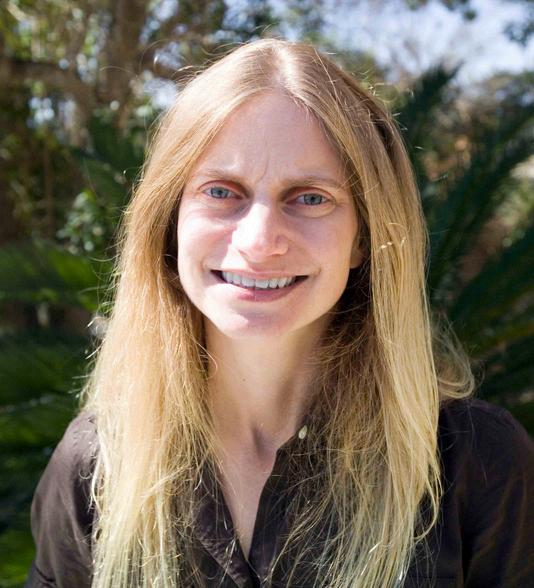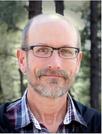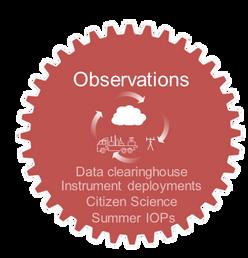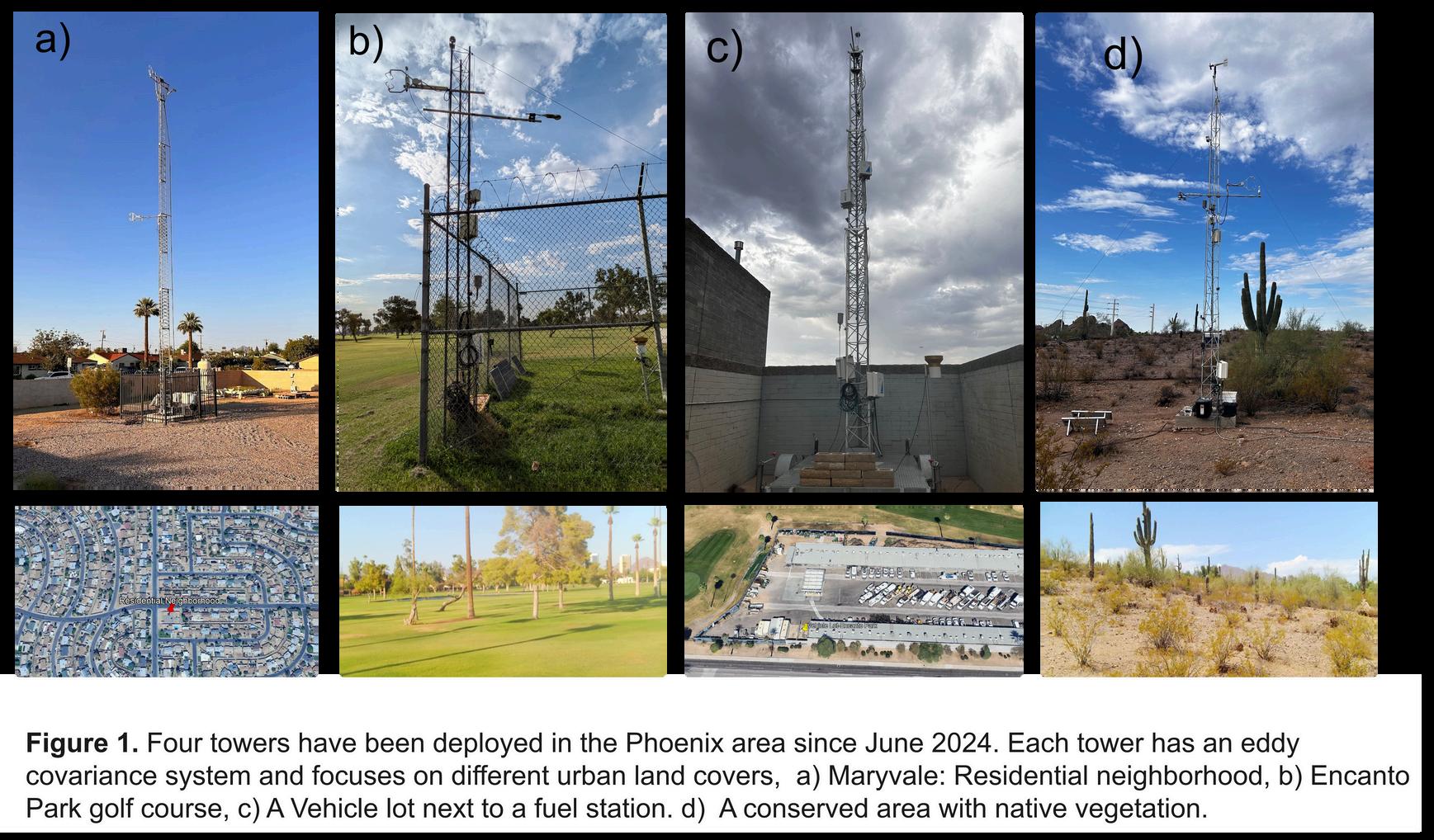SW-IFL Team Google Calendar
SW-IFL Website
SW-IFL SharePoint Page
Newsletter Sign Up
EM SW-IFL
Unsubscribe from SW-IFL Updates


SW-IFL Team Google Calendar
SW-IFL Website
SW-IFL SharePoint Page
Newsletter Sign Up
EM SW-IFL
Unsubscribe from SW-IFL Updates


*If you’d like a physical copy of this newsletter, please contact Shannon Zweig
Jan 21: Observations Team Meeting
Jan 28: DOE Report for 2024 Q4
Feb 13: Leadership Team Meeting Resilient Solutions Team Meeting
Feb 28: 2025 Spring All Hands Meeting - Summer IOP Planning
Mar 13: Leadership Team Meeting Resilient Solutions Team Meeting

SW-IFL team and friends, welcome to the first SW-IFL quarterly newsletter of 2025!
As you'll see from the contents of this newsletter and our annual report (now available at our website at https://sw-ifl asu edu/news), we had an incredibly successful 2024! We are very proud of our accomplishments and look forward to another great year of discovery together. In particular, we are starting to ramp up for our summer intensive observation period (IOP) To improve planning for this year's IOP we will be holding a virtual all-hands meeting in late February. Look for more details in the coming weeks.
Going forward, and as a reflection of the shared leadership of the SW-IFL, our Deputy Director, Dr. Jean Andino and I will be taking turns in giving the "Leadership Message" in these quarterly newsletters. Look for Jean's insights coming in April!
Sincerely,
Dr. David Sailor SW-IFL Director

The 2024 annual report for the Southwest Urban Integrated Field Laboratory is now available.

If you would like a physical copy, please email Shannon Zweig (ASU) at Shannon.Zweig@asu.edu.
Please extend a warm welcome to the following individuals who will be joining the SW-IFL Advisory Board for 2025. Comprised of the Stakeholder Advisory Group and the Technical Advisory Group, together they address both the processes and technical aspects of the project. You can find a full list of our Advisory Board members on the SW-IFL website under the People tab.

Dr. Lynn Russell UC San Diego/Scripps Technical Advisory Group



ADDRESSING EXTREME HEAT AND ASSOCIATED ENVIRONMENTAL AND SOCIETAL STRESSORS THROUGH RESILIENT SOUTIONS & NEXTGENERATION PREDICTIVE TOOLS

Dr. Christopher Castro National Center for Atmospheric Research (NCAR) Technical Advisory Group
Dr. Peter Fulé Northern Arizona University Technical Advisory Group
Lilliana Cardenas Maricopa County Public Health Stakeholder Advisory Group

Mikayla Cutlip The Nature Conservatory Stakeholder Advisory Group

David Sailor, ASU
Jean Andino, ASU


Ladd Keith, UA
Patricia Solis, ASU
Planning Discovery
Plan Quality Evaluation for Heat Resilience Guidebook

Completing guidebook that will allow planning practitioners and researchers to autonomously evaluate their own community plans for heat resilience
Climate Action Plan Evaluation (CAPE) approach
Completing systematic Literature review and manuscript
Climate Profile based on CAP methodology completed and approved by Pima County’s Planning and Zoning Commission
Click here: Climate Profile: Pima County, Arizona Pima Prospers Comprehensive Plan 2025.
The CAPE approach is being piloted in comprehensive plan updates for the City of Tucson and Pima County
Heath Action Plan Evaluation
Completed coding of 65 plans including 34 city scale plans across the world
Completed descriptive analysis of 34 city scale plans across the world

AI-based Plan Evaluation
Piloting AI-based evaluation approach to compare the performance, methodological, and ethical considerations of using Large Language Models (LLMs) for plan evaluation for heat resilience.
Completed and compared LLMbased coding of 10 plans.
National Level Heat Action Plans
Initiated work on collecting plans to be evaluated for their scope of strategy on national heat-related issues.
Collaborating with City of Mesa to identify the priority vacant lots for implementation
Technical Workshop: Towards a Common Framework for Extreme Heat Reduction, Geneva, Switzerland. Hosted by the World Meteorological Organization, United Nations Disaster Risk Reduction, and Global Heat Health Information Network and held in December 2024. Ladd Keith (UofA) participated in the development of a global heat governance framework and presented SW-IFL research and perspectives on heat governance from Arizona and the U.S.
Ladd Keith, UA
Patricia Solis, ASU
Mobility Discovery
Drafted initial scope of Mobility Discovery survey
Met with interested SW-IFL research partners to discuss overlap with modeling, observations, and opportunities to address stakeholder questions from other universities.


Urban Residential Discovery
PhD candidate, Elise Otto (UofA), passed comprehensive exam and will move forward to her dissertation focused on housing and heat.
City of Tucson manufactured housing grant: Mark Kear (UofA) advised City of Tucson and community partners on submission of an 11 million dollar manufactured housing grant, which will be used to rehabilitate housing units, including making them more climate efficient.
Air Quality Monitoring
Completed PurpleAir Monitor installation at Tucson Audubon Society’s Main Office and Mason Center.
Discovery Fellows & HeatMappers
Site placements and research activities were ide HeatMapper positions
Design Competition for Transit Stops
Held four research sessions attended by 38 students and SW-IFL researchers to inform design teams. These included presentations and Q&A’s from 7 SW-IFL researchers and a representative from Tucson’s Sun Tran.
UIFL Collaborative Transdisciplinary Project
Completed draft of pre-survey for IFL teams Th team science and community-engaged research practices of the IFL teams Results will be used to craft professional development materials to help teams strengthen their transdisciplinary research approaches

Ladd Keith, UA
Patricia Solis, ASU

Testbed: Oracle Road Corridor
Developed memo for researchers: Describes background, demographic, and geographic context for researchers as well as descriptions of lines of inquiry and research questions from stakeholder discussions
Weather Stations:
Working with City of Tucson on placement of weather station on a publicly owned multifamily apartment building.
Met with additional stakeholder from the City of Tucson (transportation, flood management) to discuss other possibly locations for weather stations.
Coordination Efforts
Meeting with Modeling Team to discuss opportunities for scenario planning.
Meeting with UofA researcher outside of the SW-IFL interested in overlapping research questions related to the eddy covariance tower. Identified a plan for spring term to develop study design with stakeholder and observations team.
Meetings and Events
Resilient Solutions Monthly Team
Meetings on February 13th and March 13th at 11 am MST. Contact Ladd Keith or Patricia Solis.
2025 Southern Arizona Heat Summit, February 1st. For more information, contact climateactionplan@tucsonaz.gov

Ladd Keith, UA
Patricia Solis, ASU
Planning Discovery
Climate Action Plan Evaluation (CAPE) approach

Continue to collaborate with City of Tucson and Pima County on using CAPE for evaluating and refining new plan updates.
Complete analysis of baseline plans from Pima County and City of Tucson.
Publish paper on systematic literature review
AI-based Plan Evaluation
Complete phase 1 and publish findings from Large Language Model (LLM)-human coding comparative.
Heat Action Plan Evaluation
Complete qualitative analysis of the city-scale and national-level heat action plans
Prepare manuscripts for publication
Vacant Lot Study
Model the impact of future scenarios of vacant lot uses on heat resilience
Mobility Discovery
Finalize Mobility Discovery survey, submit Institutional Review Board (IRB) application, and identify third party administrator for “general population” survey
Testbed: Oracle Road Corridor
Convene City of Tucson stakeholders and members of the Observation and Modeling Teams to determine locations and timing of instrumentation for Intensive Observation Period 2025
Work with modeling team to identify possibly scenario planning that identifies impact of proposed or planned green infrastructure strategies, land use changes associated with economic development along bus rapid transit lines, and implementation of cool pavement technologies.
Develop policy briefs or other communication that explains findings for stakeholders.
Collaborate non-SWIFL researchers focused on water conservation and landscape and SW-IFL Observations Team to identify study design for mobile eddy covariance towers in Tucson.
Continue working with City of Tucson to identify locations for weather stations and obtain approval from City Manager’s office.
Ladd Keith, UA
Patricia Solis, ASU
Air Quality Monitoring

Install PurpleAir Monitors at additional schools and the Tucson Audubon Society’s Patagonia Office. Update PurpleAir Monitor dashboard with sensors at Tucson Audubon Society.
Discovery Fellows & HeatMappers
Recruitment and selection of participants for research sites
Discovery Fellows - March 1st
HeatMappers - April 15th
Design Competition for Transit Stops
Provide three project review sessions for students. During these sessions students can meet with practitioners to receive feedback on progress. (Dates to be determined)
UIFL Collaborative Transdisciplinary Project
Coordinate across the Urban Integrated Field Laboratory (UIFL) teams to finalize the transdisciplinary team science practices survey
Disseminate survey and analyze pre-survey findings in order to develop professional development studies.
Professional development sessions will be scheduled in collaboration with all the IFLs, likely in late spring/summer 2025.
Multiple journal publications, media interviews, and presentations were conducted by the Resilient Solutions team. For a detailed list, please see the News tab at the SW-IFL website.
13 journal publications


15 presentations

3 Media Interviews
Enrique Vivoni, ASU
Ted Schuur, NAU
Katia Lamer, BNL

We measured the exchange of carbon dioxide (CO ) between the surface and the atmosphere as well as energy transport at different land covers at different locations in the City of Phoenix, from June to September 2024
Figure1.FourTowershavebeendeployedinthePhoenixareasinceJune2024.Eachtowerhasaneddycovariancesystemandfocusesonthe differenturbanlandcovers. a)Maryvale:Residentialneighborhoodb)EncantoParkgolfcoursec)Avehiclelotnexttoafuelstationd)A conservedareawithnativevegetation

Our initial findings indicate that summer conditions at the sites were characterized as carbon sources at three of the four locations, except for the golf course park where irrigated vegetation was a carbon sink.
We also found major differences in ET among sites: Residential neighborhood = 104 mm, managed turfgrass = 635 mm, vehicle lot = 151 mm, Native desert vegetation= 27 mm. Our findings point to the important role of land cover differences across the sites and the need to base equitable mitigation strategies based on urban characteristics.
Enrique Vivoni, ASU
Ted Schuur, NAU
Katia Lamer, BNL
Presentations

Participated in the DOE UIFL PI Meeting in Rockville, MD on 10/28-10/29-24

Additional Activities


Urban Network Expansion and Data Transmission
Participated in the 2nd Urban Flux Community of Practice Webinar Series, conducted by Prof Kenneth Davis (Penn State U ) working on the BESEC IFL
We will deploy sensors for a high-rise urban site (ASU Tempe campus) in January/February 2025.
Daily data transmission from all operational urban eddy covariance towers (5 in total) will begin via cellular modem in quarter one of 2025.
Eddy Covariance Training Activities
Flux theory and data processing training at ASU by LiCOR Environmental on January 14-15
LiCOR Connect 2025 conference in Tucson, Arizona
Obtaining permission for Mesa Community College tall tower installation. Deployment and troubleshooting of ASU Tempe campus tall tower.
Real-time data transmission from urban towers.
Coordinated data processing and transmission for summer 2024 towers.
Kevin Gurney, NAU
Matei Georgescu, ASU

The SW-IFL Modeling team made various presentations at the 2024 American Geophysical Union (AGU) Conference in Washington, D.C. from December 9-13, 2024.
“Europe vs CONUS How different climates and city structures affect the efficiency of mitigation/adaptation strategies to minimize outdoor heat stress and building energy consumption ”
Contributors: Alberto Martilli, Matei Georgescu, Fengqi Li, Joshua New, David Sailor, Harsh Kamath.
“Numerical Modelers, Resilience Solution Experts and Observationalists Came Together to Design Urban Field Experiments Focused on Extreme Heat and Related Hazards.”
Contributors: Katia Lamer, Enrique R Vivoni, Kristina V M. Currans, Matei Georgescu, Ladd Keith, Dr. Joshua R New, Parag Joshi, Edwin Davis, Fengqi Li, Malini Roy, Zackary Mages, Francisco Salamanca, Eli R Perez-Ruiz, Alamin Molla, Xiangmin Sun, Melissa R Allen Dumas, Jean Andino, David Sailor and Southwest Urban Integrated Field Laboratory (SW-IFL) team.
“A Multi-Scale Framework for Urban Heat Island Analysis: Integrating Building EnergyModeling, Spatial Analytics, and Machine Learning in Maricopa County, Arizona.”
Contributors: Shovan Chowdhury, Fengqi Li, Avery Stubbings, Joshua New.

“Spatial Heterogeneities in Buildings Attributes within and across US Metropolitan Areas.”
Contributors: Bhartendu Pandey, Melissa R Allen Dumas, Christa Brelsford, Fengqi Li, Joshua R New.
The Modeling team will simulate specific region of Arizona to support the other teams' data requests. For example, the Hestia model comparison (request of 2022 simulation results).
Collaboration Opportunities and Challenges
Model America Building data and fTMY weather file ready for share. For more information contact Fengqi Li (ORNL)
The Modeling team is discussing the best options on transferring big data to other teams.


The quarterly report to the US Department of Energy for SW-IFL activities completed from October through December 2024 will be presented by the SW-IFL Leadership Team to our DOE Program Managers on January 28th at 10 am MST
The virtual Spring All Hands Meeting on February 28th from 8:30 -10:00 AM MST is an opportunity for the SW-IFL Advisory Board to provide input on researchers’ planned Summer Intensive Observational Period (IOP) activities
Each month the three research teams hold meetings via Zoom to discuss activities and research. Please note that the dates from February onward for both the Modeling and Observation teams are to be determined during their January meetings. If you would like to attend either team’s meetings, please reach out to Shannon Zweig at Shannon.Zweig@asu.edu to be added to the meeting invites
Did you capture images or videos during the SW-IFL Summer IOP activities? If so, we’d love to have them Feel free to upload your photos and videos throughout the year, but especially of this summer’s IOP campaigns and activities using this GOOGLE
PHOTO FORM
Please note, uploaded images and videos will be shared in our public facing annual report and in other various report outs for conferences and meetings through out the year.
SW-IFL Team Google calendar (Internal use only)
SW-IFL Website
SW-IFL SharePoint Page (Internal use only)
SW-IFL Newsletter Sign Up
Email SW-IFL

ADDRESSING EXTREME HEAT AND ASSOCIATED ENVIRONMENTAL AND SOCIETAL STRESSORS THROUGH RESILIENT SOUTIONS & NEXTGENERATION PREDICTIVE TOOLS
David Sailor, ASU
Jean Andino, ASU

